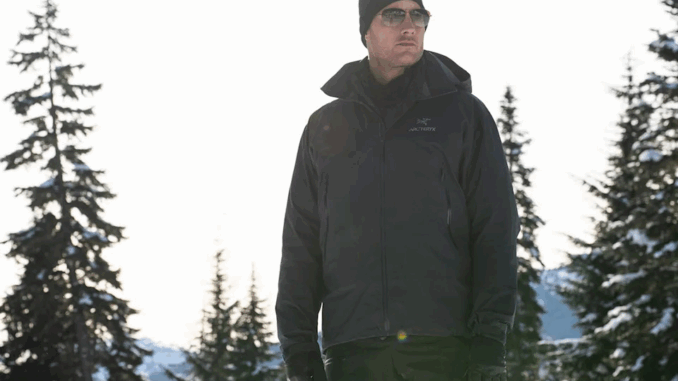
A New Kind of Hero: Who Is Colter Shaw?
CBS’s Tracker isn’t just another crime-of-the-week procedural—it’s a fresh take on the modern loner hero. At the center of this compelling series is Colter Shaw, a mysterious survivalist and expert tracker played by Justin Hartley (This Is Us). Unlike traditional detectives or federal agents, Colter isn’t bound by any badge or bureaucracy. He operates outside the law, relying on wilderness skills, psychological insight, and moral instinct to locate missing persons and fugitives.
Shaw is hired by individuals, families, or even police departments to find people—alive or dead. His motivations are partly financial (he collects reward money), but deeper emotional scars from his own past fuel his relentless pursuit of truth and justice. His complex character and solitary lifestyle make him a fascinating antihero for a new era.
Every Episode, A New Puzzle
One of Tracker’s greatest strengths lies in its episodic structure. Each week, Colter is dropped into a completely different world—a new location, new characters, and a new mystery. One episode might take place in the foggy forests of the Pacific Northwest, while the next could be in the neon-lit streets of Las Vegas. The show never stays in one place long, mimicking Colter’s nomadic existence and keeping viewers on their toes.
But Tracker isn’t just about solving mysteries—it’s about human stories. The missing people Colter searches for aren’t just plot devices; they each come with emotional baggage, unique challenges, and moral complexity. It’s this emotional depth that elevates the show from a standard procedural to something far more resonant.
Justin Hartley’s Breakout Role Post-This Is Us
For fans of This Is Us, Justin Hartley’s portrayal of Colter Shaw is a revelation. He trades in the Hollywood charm of Kevin Pearson for grit, determination, and quiet intensity. Hartley brings physicality and vulnerability to the role, making Shaw feel like a real man shaped by trauma, survival, and a strange kind of empathy.
In Tracker, Hartley proves he can carry a series entirely on his shoulders. His performance balances toughness with introspection, often revealing more with silence and body language than with words. He is both a hero and a haunted soul—and that’s a rare combination on network TV.
A Backstory Worth Unpacking
One of the most intriguing elements of Tracker is Colter Shaw’s backstory. Raised in an off-the-grid survivalist family, Shaw’s father was a brilliant but paranoid man who believed society was collapsing. His mother was a mathematician, his brother met a mysterious fate, and Colter eventually left home after a traumatic falling out.
The show slowly unpacks this past through flashbacks and cryptic memories, giving viewers more reasons to stay invested. Shaw’s personal demons often resurface during cases, blurring the line between the people he’s trying to help and the person he’s trying to become. It’s not just the criminals he’s chasing—he’s also running from his own ghosts.
Strong Female Characters and a Rich Supporting Cast

Although Shaw works alone, Tracker is far from a one-man show. The series includes a strong supporting cast that adds emotional and narrative depth. Fiona Rene plays Reenie, a tech-savvy researcher who assists Shaw remotely and serves as his moral compass. Robin Weigert, as Colter’s former mentor, brings gravitas and tension, hinting at a history more complicated than we know.
These women are more than side characters—they’re part of the intellectual and emotional fabric of the show. Their dialogue is sharp, their arcs meaningful, and they challenge Colter in ways that force him to evolve as a man and as a tracker.
Not Just Action—Ethical Dilemmas at Every Turn
What sets Tracker apart is its ethical ambiguity. Colter doesn’t just solve crimes—he makes tough calls. Sometimes he must decide whether to return someone to a dangerous environment or to bend the law to protect them. Other times, he must confront his own biases, asking whether he’s truly helping or just chasing adrenaline.
These gray areas make every episode feel meaningful. Viewers aren’t just passively watching; they’re questioning what they would do in Colter’s place. In a media landscape filled with black-and-white morality, Tracker dares to live in the uncomfortable gray.
Visually Stunning and Cinematically Shot
Don’t expect static sets and predictable camerawork. Tracker is shot on location across North America, giving each episode a cinematic feel. Whether it’s dense woods, abandoned towns, or sprawling deserts, the landscapes become characters themselves—hostile, beautiful, and unpredictable.
This visual scope gives Tracker a sense of realism and urgency, echoing the vastness of Colter’s internal journey. It’s not just television—it feels like an adventure film broken into chapters.
Why Tracker Is Worth Watching
CBS has crafted something special with Tracker. It’s thrilling without being shallow, emotional without being manipulative, and smart without being smug. The series taps into timeless themes—justice, identity, loss, redemption—while delivering high-stakes drama every week.
If you’re tired of formulaic procedurals or flashy crime shows that lack soul, Tracker is the answer. It offers both the heartbeat of a character drama and the pulse of a mystery thriller. Every episode leaves you wanting more—not just more action, but more truth, more resolution, more Colter Shaw.
So, whether you’re a crime buff, a drama lover, or just in search of a gripping story told well, it’s time to start tracking Tracker.
Catch Tracker on CBS or stream on Paramount+—and discover why everyone’s talking about TV’s most elusive new hero.
